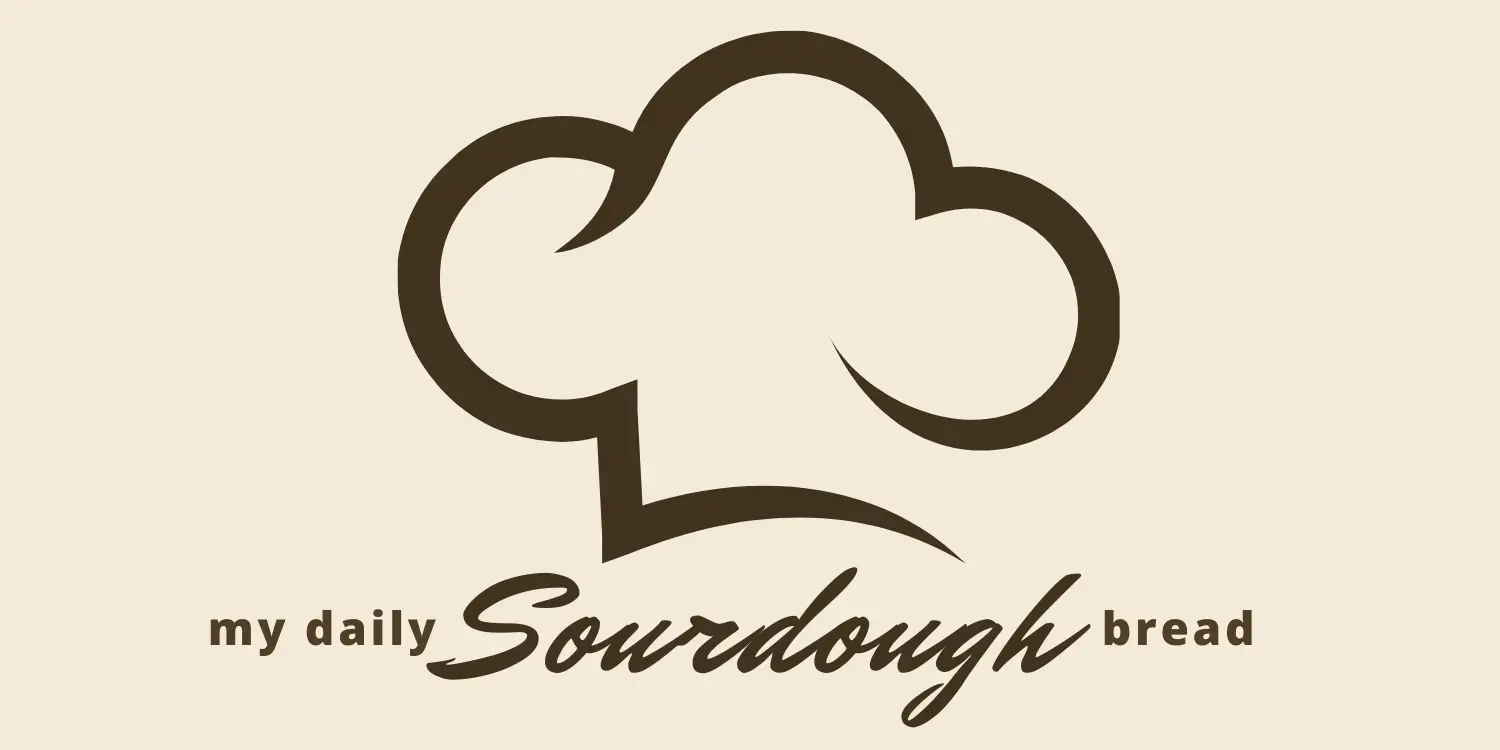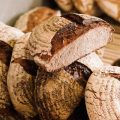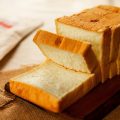Sourdough bread is unique, delicious, and loaded with health benefits for our bodies. And since it’s growing in popularity, many people are trying their best to make a healthier choice and incorporate this flavorful bread in their daily diets. Sourdough probiotics are essential for digestion and promote good gut health compared to other breads. This is only one of the many health benefits provided by sourdough bread, so let’s take a look at what else you need to know!

Table of Contents
- Does Sourdough Bread Have Probiotics?
- What do Probiotics in Sourdough Bread Do?
- Does Sourdough Bread Have Prebiotics?
- The Best Sourdough for Gut Health
- The Fiber in Sourdough Bread
- The Bottom Line
- FAQs
Does Sourdough Bread Have Probiotics?
Technically, sourdough bread does begin with probiotics that are present during the fermentation process. The fermentation process also helps break down phytic acid, making it easier for you to digest as this is what the starter is pretty much made out of.
Unfortunately, during the baking process, the good bacteria die off due to exposure to high temperatures. Though fully baked, sourdough bread contains no probiotics. But it still contains a good nutritional content of vitamins and minerals, which are very beneficial for your gut, making it easier to digest. Thus, this is why it is always held in such high regard.
What do Probiotics in Sourdough Bread Do?
The probiotics in sourdough derive from the starter, which is an essential ingredient in sourdough bread. The starter is used as a leavening agent to create leavened bread, and contains a variety of bacteria or yeasts that are good for your gut.
These bacteria and yeasts come from:
- What is naturally found in the flour
- What is naturally found in the air surrounding it
These naturally occurring bacteria and yeasts feed off the sugars and starches evident in the flour.
Once a heap of fresh flour is added to your starter to make sourdough bread, the bacteria feast on the extra food, and they work on a bunch of things when eating the flour:
- Decrease the Phytic Acid in the Wheat
- Pre Digest the Flour
- Lower the Glycemic Index of the Bread
- Produce Lactic Acid
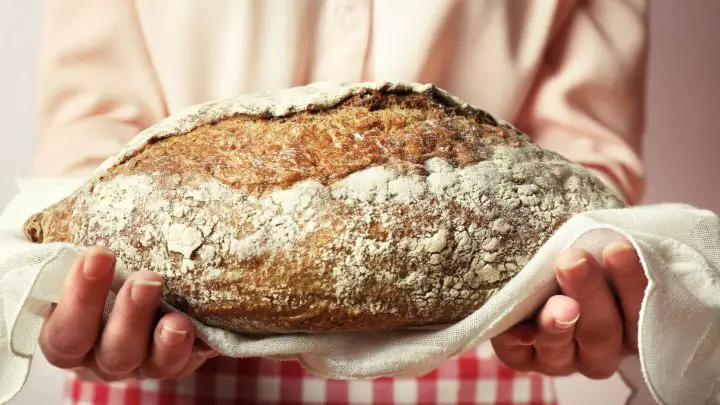
Decrease the Phytic Acid in the Wheat
Phytic acid is found in all grains including wheat grains. It prevents the body from effectively absorbing nutrients when they’re presented in large amounts.
The bacteria and yeasts in sourdough lower the phytic acid in wheat considerably, compared to conventional bread, essentially improving the nutrients so that they are ready to enter our bodies
Pre Digest the Flour
The bacteria and wild yeast pre-digest the flour by consuming its sugar elements before it’s ready to bake with.
This results in a happy healthy gut since some of the more difficult tasks have been completed before it had reached our digestive system.
Lower the Glycemic Index of the Bread
The bacteria and yeasts found in the starter consume the sugars, enabling the sourdough bread to have a low GI than other commercial yeast bread.
Eating foods with lower glycemic index can keep you fuller for longer, which is another great nutritional benefit of sourdough bread.
Produce Lactic Acid
During the bacteria and yeast feeding, lactic acid is produced. Lactic acid bacteria provides the sourdough bread with its wonderful tangy flavors, though it also protects the bread from growing mold and encountering other harmful bacteria.
This is one of the reasons why homemade sourdough breads tend to last a little longer than other homemade breads, as it naturally contains mould resistant properties.
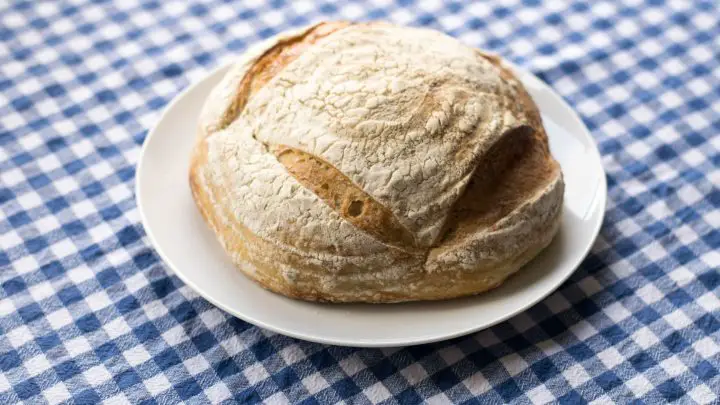
Does Sourdough Bread Have Prebiotics?
Though probiotics are unable to survive the high heat during the baking process, sourdough bread will definitely contain prebiotics. These are just as good for gut health, and luckily sourdough has lots of it.
Prebiotics are able to survive the intense heat during baking, and are a type of fiber that our gut bacteria uses as a food source. Once the bacteria in our guts feed on these prebiotics they release beneficial nutrients into our bodies, which make them an ideal choice in place of conventional breads.
The Best Sourdough for Gut Health
Generally, sourdough bread is much better for your gut health as opposed to other bread that undergo a separate fermentation process using commercial yeast.
But if you want to really get into the heart and soul of sourdough bread, then you’ll find that some varieties of this bread are more easier to digest than others, because of their grain structure.
Ancient grains are much easier to digest than wheat varieties, and if you suffer from digestive issues as a result of other breads then you may want to try:
- Spelt
- Einkorn (check out my einkorn sourdough recipe!)
- Emmer
- Kamut
To make the best of the nutrients in sourdough bread it’s good to eat a variety of ancient grain sourdough bread, as they’re much simpler for the body to break down.
The Fiber in Sourdough Bread
Prebiotics are a type of soluble fiber, but sourdough happens to contain other fibres such as:
- Insoluble fiber
- Resistant starch
Insoluble Fiber
This is normally found in the bran of wheat and isn’t absorbed or fermented through the gut. Instead this acts as a bulking agent to help pass out the waste, leaving your gut healthy. These are some of the many benefits of sourdough bread.
Resistant Starch
Resistant starch is a type of fiber that comes with its own list of nutritional benefits for the body, including:
- Improved insulin sensitivity
- Lower blood sugar levels
- Reduced appetite
Sourdough bread contains more resistant starch than say white bread, due to the extended fermentation process.
If you’re planning to increase the levels of resistant starch and fiber then you might want to opt for wholemeal sourdough varieties as opposed to perhaps white sourdough.
The good bacteria and yeasts evident in the sourdough starter is what makes this bread incredibly nutritious.
The Bottom Line
If you’re someone who suffers from a sensitive gut then you may want to incorporate some sourdough bread into your diet. The good bacteria in this bread make it so much easier for your body to digest so you can remain satiated, without the discomfort you’re accustomed to feeling from eating other types of bread.
FAQs
Does Sourdough Bread Have Prebiotics?
Sourdough bread contains less gluten, low levels of antinutrients and more prebiotics which aid in digestion.
Is Sourdough Bread a Prebiotic or Probiotic?
Sourdough bread is prebiotic. During the fermentation process a sourdough starter contains lots of probiotics but these good bacteria cannot withstand high heat in the oven, so baked sourdough bread contains prebiotics as they’re perfectly capable of surviving the heat of the oven.
Does Sourdough Bread Help Gut Flora?
Since sourdough bread contains prebiotics, this helps the growth of good bacteria in your intestines. These plant fibres help promote healthy gut flora which is important in digestion. This also strengthens your immune system and reduces the risk of digestive diseases.
How Many Probiotics are in Sourdough Bread?
There are more than 50 species of lactic acid bacteria found in sourdough starters, most of them are lactobacillus bacteria and can only survive up to a temperature of 138 degrees Fahrenheit.
